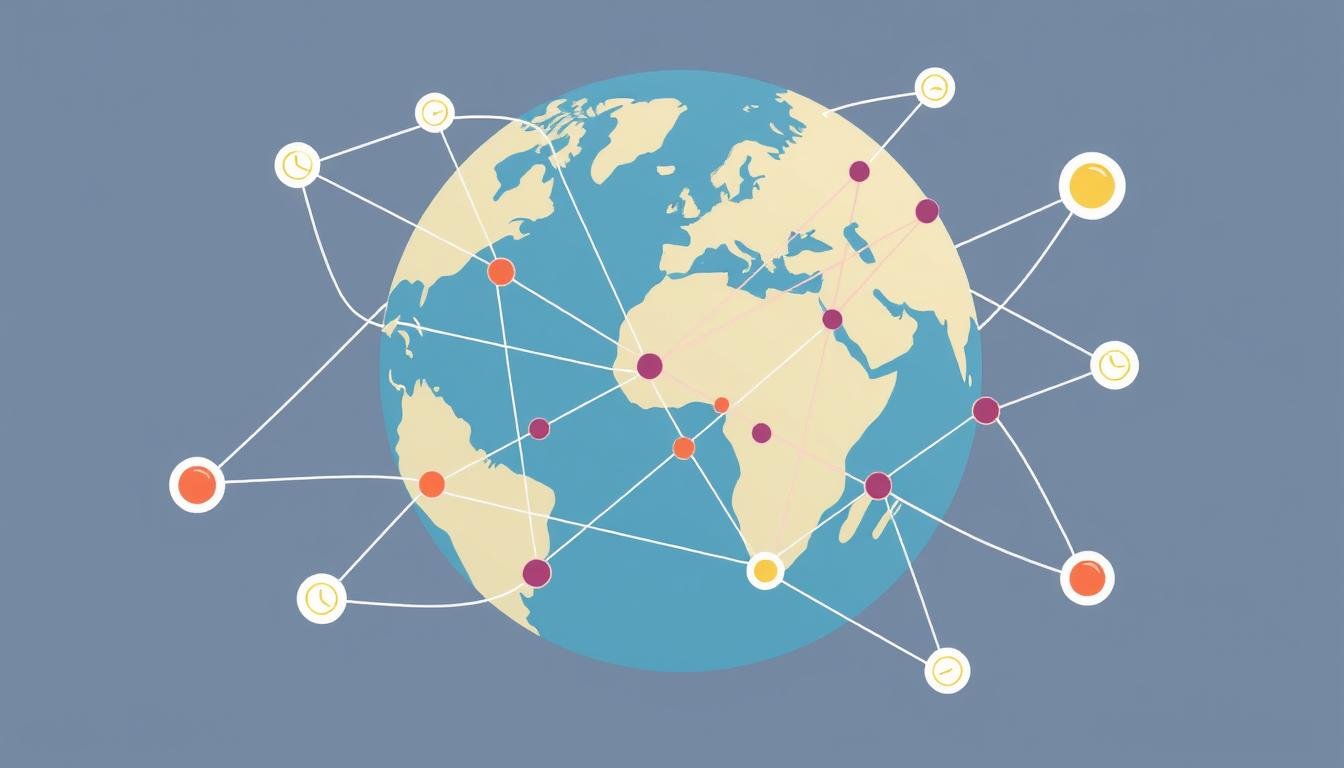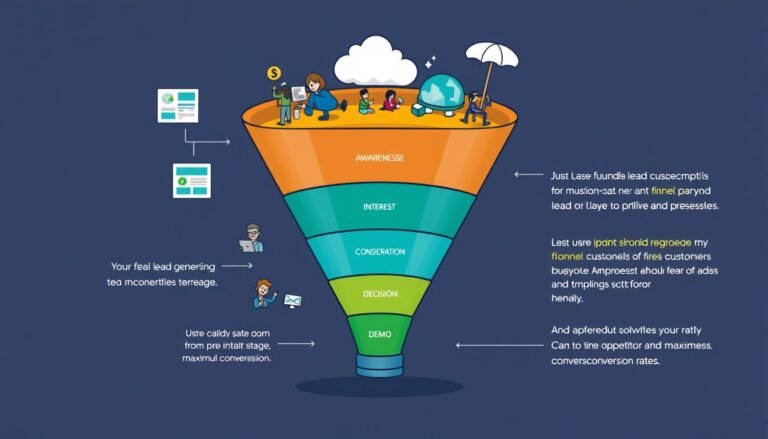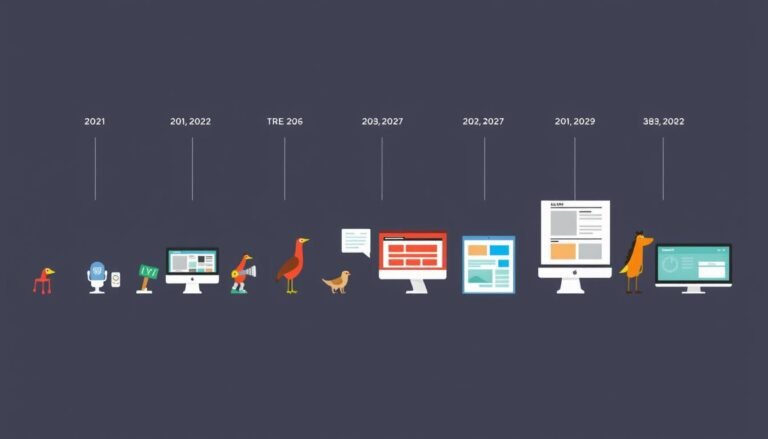The Ultimate Guide to Effective Networking
Did you know that about 70-80% of jobs are found through networking? This fact shows how important networking is for finding jobs and moving up in your career. In our connected world, building a professional network is key for career growth. Making strong connections can lead to hidden job opportunities and valuable resources.
This guide will cover the different sides of networking. We’ll talk about what networking really means and who you should connect with. You’ll learn how to make the most of networking events and keep those important connections. With advice from recent studies and experts, you’ll get tips to improve your networking skills and boost your career.
Key Takeaways
- Networking can significantly increase your job opportunities, with 70-80% of jobs coming from connections.
- Recommendations can enhance your credibility with hiring managers.
- Utilizing LinkedIn effectively, with optimized profiles, is crucial for successful networking.
- In-person and virtual events are excellent avenues for meeting industry professionals.
- Volunteering and joining professional associations can amplify your networking potential.
- Engaging with alumni networks offers valuable job leads and advice.
What is Networking?
Networking is key to growing in your career and moving up. It’s about sharing knowledge and ideas with others who have similar goals. This sharing can lead to getting advice and mentorship that helps you grow.
Defining Networking
Networking means connecting with others to help each other out. It’s not just about sharing information, but also building relationships. This way, you can get support and work together in the future.
The Importance of Networking
Networking is crucial for career success. It’s not just about knowing a lot, but also knowing the right people. Many jobs are found through personal connections, not job ads. LinkedIn says 70 percent of people get jobs this way.
Building strong connections lets you see opportunities that aren’t advertised. This can really help you in your career.
Who Should You Network With?
Start by networking with people you already know, like family, friends, and coworkers. Joining groups and associations in your industry can also help. Meeting experienced people can lead to mentorship and growth in your career. Online platforms like LinkedIn and TigerNet are great for finding people who share your career goals.
- Engage with student professional organizations.
- Utilize informational interviews for insight.
- Participate in career fairs, conferences, and industry talks.
- Approach networking with curiosity and openness.
| Networking Opportunity | Timeframe | Benefits |
|---|---|---|
| Career Fairs | Annual | Connect with employers and explore job opportunities. |
| Conferences | Multiple times a year | Learn industry trends and meet influential figures. |
| Informational Interviews | As needed | Gain insights and advice from industry professionals. |
| Professional Associations | Ongoing | Access to resources and networking events. |
Using these tips can make you a better networker and help you build a strong professional network.
How to Approach Networking Events
Networking events are great for professionals to meet, learn, and grow their networks. Knowing the different types of events and being well-prepared can really help you succeed. By following the best networking tips, you can build your professional network better.
Types of Networking Events
There are many types of networking events, each with its own benefits:
- Career Fairs: Perfect for students and job seekers to meet potential employers.
- Industry-Specific Conferences: These events offer targeted networking with professionals in a specific field.
- Workshops: Combine skill-building with networking, letting participants connect while learning.
- Speed Networking: Quick, structured conversations that last 3-5 minutes, designed to make many connections in a short time.
- Roundtable Discussions: Typically involve 8-12 participants for engaging discussions on various topics, allowing for deeper conversations.
- Mixer Events: Casual gatherings that often feature food and drinks, encouraging relaxed socialization.
Preparing for Networking Events
Being well-prepared is key to networking success. Here are some strategies to help you:
- Set Clear Goals: Decide what you want to achieve from the event, like meeting specific people or learning industry insights.
- Craft Your Elevator Pitch: Prepare a concise self-introduction that clearly shares your background and goals.
- Research Attendees: Knowing who will be there can help guide your conversations and increase connection potential.
- Plan Conversation Starters: Engaging questions or topics related to current trends can help you connect deeper.
- Dress Appropriately: First impressions matter, so make sure your appearance fits the event’s vibe.
- Follow-Up Strategy: Have a plan for keeping in touch after the event, as strong follow-up helps build relationships.
By using these networking tips, you can make meaningful connections that help grow your professional network. Being active in different networking events not only builds connections but also opens doors to industry knowledge and opportunities.
The Ultimate Guide to Effective Networking
Networking is key for career growth and making strong connections in different fields. Knowing how to network well can help you build lasting relationships. This guide will cover important tips like making a great elevator pitch, starting conversations, and listening well.
Crafting Your Elevator Pitch
A good elevator pitch tells people who you are and what you want to achieve in a short time. It makes your professional life clear and grabs the attention of others. Practicing your pitch helps you deliver it smoothly, which is great for making a mark at networking events.
Conversation Starters for Networking
Being ready to start conversations is crucial. Think of questions that lead to interesting talks, like what people think of the event or the latest news in their field. Knowing the latest trends helps you join in on discussions easily. Using good networking tips and resources makes starting talks easier.
The Art of Active Listening
Listening well is vital for building strong relationships. Showing you care about what others say helps you connect better and makes a strong impression. Active listening shows you’re professional and encourages others to talk back, strengthening your network.
| Networking Technique | Description | Benefits |
|---|---|---|
| Elevator Pitch | A concise introduction that summarizes your professional background and goals. | Captivates interest quickly, facilitating connections. |
| Conversation Starters | Prepared questions or topics to initiate dialogues. | Promotes engaging discussions, making introductions smoother. |
| Active Listening | Fully concentrating on the speaker, acknowledging their message. | Builds rapport and encourages open communication. |
Maintaining Connections
Building a strong professional network takes more than just starting out. It needs ongoing effort to keep those connections alive. Reaching out soon after meeting someone can turn a brief meeting into a lasting relationship. This is key to your networking success.
Try to contact new people within 24 hours to keep the connection strong. A personal note that recalls interesting moments from your talk can make a big difference. It helps create a bond and opens doors for future work together.
Effective Follow-Up Techniques
Using tools like Popl’s digital business cards can boost your follow-up efforts. These cards are easy to share and keep track of, unlike traditional ones. They let you share your contact info, social media, and even payment info with just a tap.
Popl Teams are great for businesses too. They help manage leads and track your networking success. Regular follow-ups can turn casual contacts into valuable opportunities. This strengthens the quality of your network.
Leveraging Social Media for Networking
Today, using social media is key to networking success. Sites like LinkedIn make it easy to stay in touch with your professional network. You can join discussions, share news, and increase your visibility.
By regularly interacting with posts or joining groups, you keep your connections strong. Social media makes it easy to share information and stay engaged. This is important for keeping relationships that can lead to career and research opportunities.
Source Links
- Effective Networking Strategies for Job Seekers: Your Comprehensive Guide
- The Complete Guide to Business Networking [+8 Key Tips You Should Leverage]
- The Ultimate Guide to Running a Networking Event for Knowledge Exchange Professionals
- 1000 Networking Events Later: The Ultimate Guide to Building Authentic Connections
- The Ultimate Guide to Networking Events | Hubilo
- The Complete Guide to Hosting Successful Networking Events 2024 – Stova
- Reaching out guide / Networking tips
- The Ultimate Guide to Professional Networking
- Professional Networking: A How-To Guide








